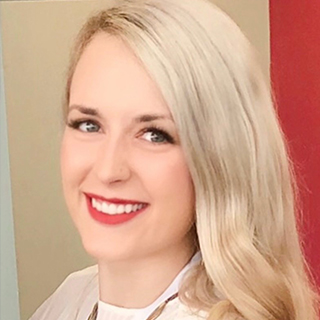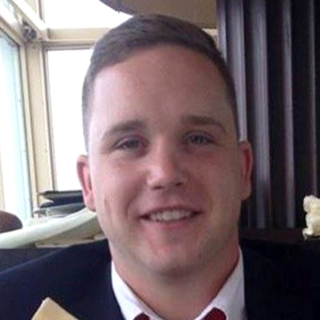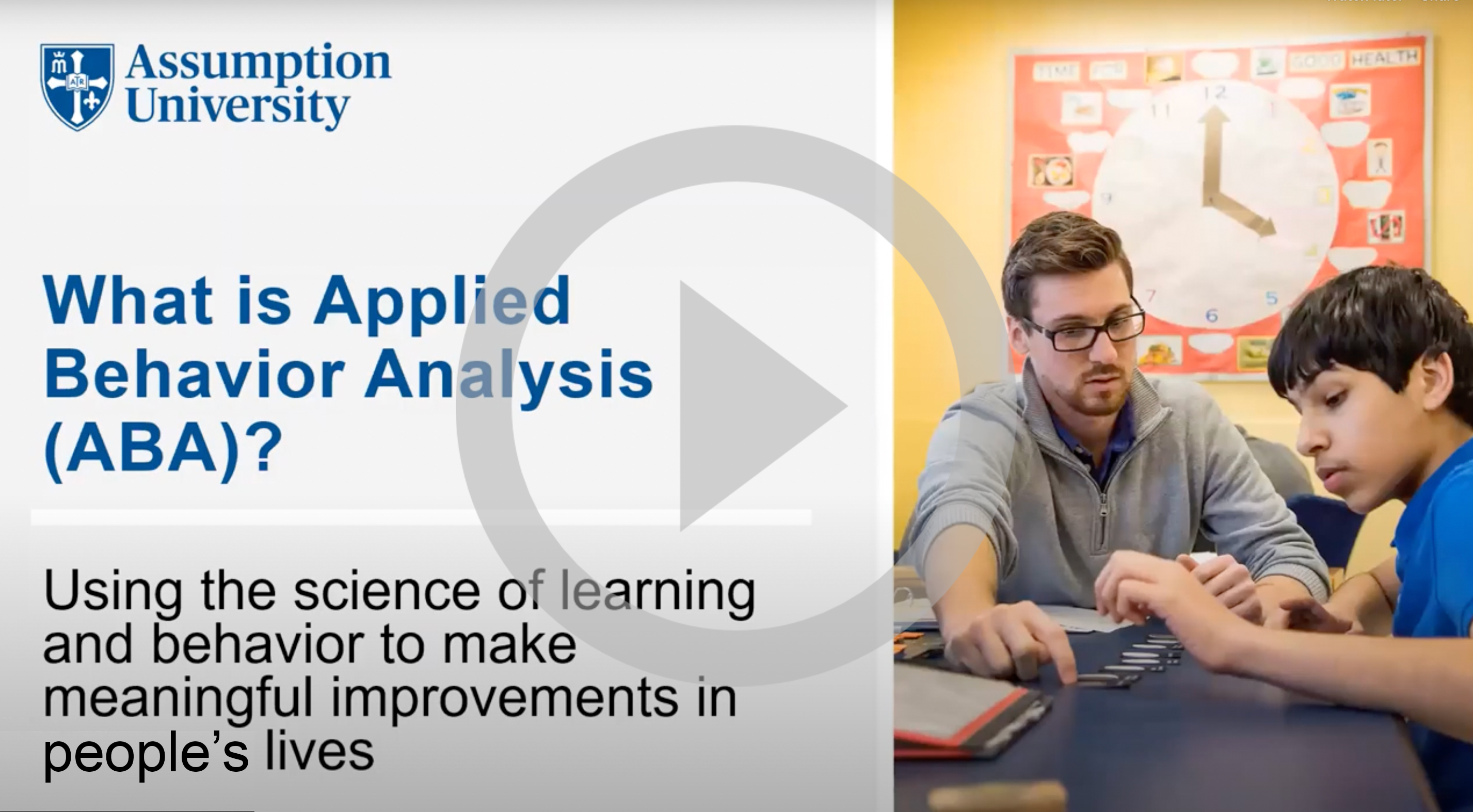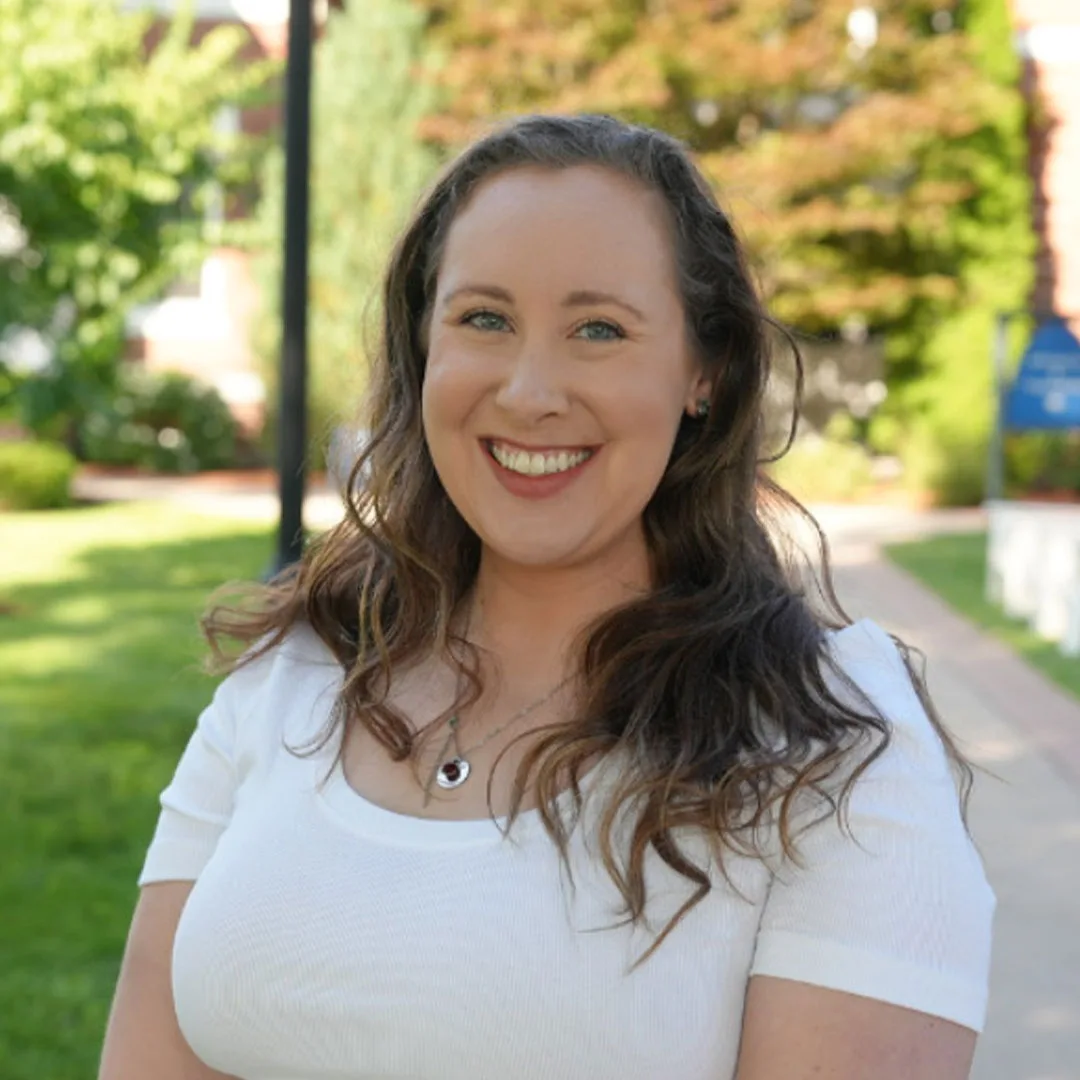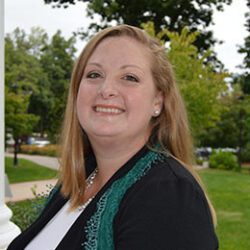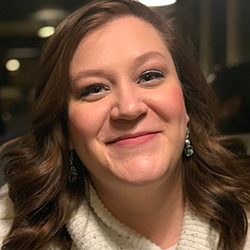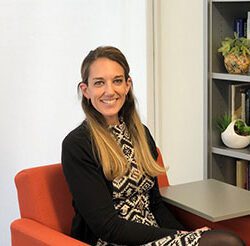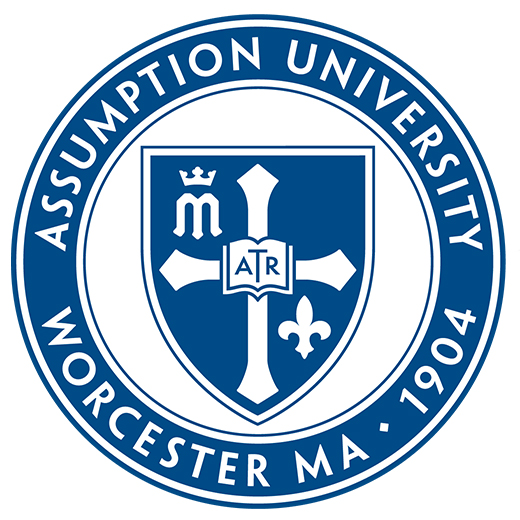Applied Behavior Analysis
How many credits is the Applied Behavior Analysis program?
The Applied Behavior Analysis program is a 43-credit program. A 48-credit thesis option is also available.
What is the cost of the program?
You can find current cost per credit and fee information on our website at s1auviv.wpengine.com/gradfinaid
Do you have both full-time and part-time options?
Yes, students can complete the ABA program full-time or part-time.
What is the average length of time to complete the program?
The ABA program can be completed in two years (including two 10-week summer semesters) full-time. However, many students choose to complete the program part-time by taking one or two classes per semester. Completing the program part-time takes about three years.
What is a typical class size?
Class sizes are small and average around 10 students per class. Practicum classes are smaller and include two to six students.
How many classes do students take per semester?
Part-time students take one to two courses per semester. Full-time students take two to three courses per semester. It is important to know that to be eligible for federal financial aid in the form of student loans, students must be enrolled in at least two graduate courses (six credits) per semester. The table below shows a sample part-time course plan and a sample full-time course plan for the capstone path.
| Part-time Option |
| Fall Year 1 |
Spring Year 1 |
Summer Year 1 |
| · ABA 500
· ABA 600 |
· ABA 501
· ABA 601 |
· ABA 603
· ABA 700 |
|
|
|
| Fall Year 2 |
Spring Year 2 |
Summer Year 2 |
| · ABA 602
· ABA 701
|
· ABA 604
· ABA 702
· ABA 800 |
· ABA 805
· elective |
|
|
|
| Fall Year 3 |
|
|
| · ABA 605
· ABA 804 |
|
|
| Full-time Option |
| Fall Year 1 |
Spring Year 1 |
Summer Year 1 |
| · ABA 500
· ABA 600 |
· ABA 501
· ABA 601
· ABA 700 |
· ABA 603
· ABA 701 |
|
|
|
| Fall Year 2 |
Spring Year 2 |
Summer Year 2 |
| · ABA 605
· ABA 702 |
· ABA 602
· ABA 604
· ABA 805 |
· ABA 804
· elective |
Are courses held online or on campus?
The ABA program meets in person and is an on-campus program. Occasionally, elective courses might meet in an online or hybrid format.
What time and how often do courses meet?
Courses meet Monday–Thursday, once per week in the late day or evenings. Course day and meeting times change each semester depending on the sections being offered.
When does the practicum start and what support is offered in finding a placement site?
Students in good academic standing can start the practicum series in their second semester. Many students enter the program already working in the field and with a desire to remain at that site for their practicum experience. For many of these students, we can work with the site to make that happen. For students who need to find a placement, we have strong relationships with many sites in the Worcester area. Students should schedule a time to speak with the ABA Program Director to discuss the type of placement they would like and what potential options there are.
The practicum courses are designed such that students can meet Behavior Analyst Certification Board® experience standards for their fieldwork. Because these standards are extensive and the process to get supervision in place can sometimes be quite lengthy, students are strongly encouraged to speak with the ABA Program Director early in their first semester (if not prior to the first semester) about practicum requirements.
What are the requirements for practicum?
Students in the MA in ABA program are required to take three semesters of practicum. They may begin after completing ABA 500 with a passing grade. The practicum courses are designed to meet the fieldwork experience standards of the Behavior Analyst Certification Board® (see www.bacb.com for more information). Based on these standards, students will need to complete 2,000 fieldwork hours, including 1,200 hours of unrestricted work, with 5% of their hours supervised. The BACB does allow a concentrated experience that reduces the total number of hours if 7.5% are supervised. There are additional requirements that must be met each supervisory period (one month). The BACB limits the number of hours that can be accumulated each supervision. Therefore, it will take a minimum of 12 months to complete the fieldwork requirements, which translates to three semesters. Students can take a fourth semester as an elective if more hours are needed.
Students must work or volunteer at a site where they can complete behavior-analytic activities and at which they can work with multiple clients. To be able to complete the fieldwork required by BACB standards within three semesters of practicum, students should expect to work full-time at their site. Students may enroll in practicum if they work part-time, but they must understand that they will not be able to complete the BACB-required fieldwork hours in three semesters in that case (i.e., they will need to take additional semesters of practicum). The practicum site needs to be able to provide the type of experiences needed (i.e., unrestricted activities) and a site-supervisor who meets BACB supervisor qualifications. Students are required to attend a multiple-session orientation the semester prior to beginning practicum.
Can I do my practicum at the place where I work?
Many students enter the program already working in the field and with a desire to remain at that site for their practicum experience. For many of these students, we can work with the site to make that happen. The site needs to be able to provide the type of experiences needed (i.e., unrestricted activities) and a site-supervisor who meets BACB supervisor qualifications who is able to provide individual supervision of 3.5 hours per month, including 1.5 hours of the student working with a client. The practicum experience may be paid or unpaid. Often, some of the student’s regular job duties can be counted as fieldwork. However, the purpose of fieldwork is to learn the skills typically performed by BCBAs, which is not usually part of students’ paid employment. Thus, students should expect that a substantial portion of their fieldwork might be unpaid even if they are able to complete that fieldwork at their place of employment.
Can you complete the practicum while working full-time?
It is possible to complete practicum while working full-time if the student is working at a site that is appropriate for accumulating fieldwork hours. If the place of employment is not appropriate for fieldwork, it is unlikely that the student would be able to work full-time and also accumulate sufficient fieldwork hours.
What are the start terms for the program?
The ABA program begins in the Fall semester only.
What are the deadlines to apply?
The application deadlines can be found on the upper left column on the main program page.
Do applicants need to take the GMAT/GRE to apply to a graduate program?
We do not require the GRE/GMAT. Applications are reviewed holistically, with a focus on an applicant’s transcript, letters of recommendation, and personal statement. For this reason, it is important to ensure a complete and comprehensive application.
Are there grants, fellowships or scholarships available?
The Applied Behavior Analysis program has an opportunity for an applicant to apply for the New England Center For Children (NECC) Fellowship. This is a terrific option for students who are interested in experiencing the experimental basis of the field and who may be considering doctoral work. The Fellowship will allow students to pursue the thesis option in the MA in ABA program. Fellows will complete an applied research thesis under the co-mentorship of an Assumption faculty member and a NECC professional.
Fellows will be hired into full-time positions at NECC, receive supervision of up to 2,000 fieldwork hours by licensed BCBAs, and will participate in ABA research projects at Assumption and at NECC. In addition, Fellows will receive 24 credits of tuition remission, a cost savings of approximately $22,000. You can find more information on our website here https://s1auviv.wpengine.com/admissions-financial-aid/graduate-admissions-and-financial-aid/graduate-tuition-and-financial-aid-2.
Do you offer financial aid to graduate students?
Federal Financial Aid is offered in the form of unsubsidized student loans. Student’s must be enrolled in a minimum of two courses per semester (i.e., 6 credits) to be eligible.
What are the GPA/application requirements?
A 3.0 GPA is required. However, in addition to your official transcript, the graduate admissions committee considers all the application materials, including three letters of recommendation, a personal statement, and a resume.
The personal statement is used to gauge a student’s overall fit for the program and serves as a writing sample that provides another measure of the student’s ability to succeed in a rigorous graduate program. The personal statement should be a 1–2-page essay that explains your professional goals and experiences. The statement should include the following:
- A description of why you are interested in studying ABA
- A description of your post-graduate professional goals
- Information on previous experiences, including research, practicum, internship, and work in the field of ABA
- Demonstration of a commitment to studying ABA as science to understand and improve human behavior
Letters of recommendation are an important part of the application package. Students should carefully consider their recommenders, choosing people who are able to speak to their academic strengths, ability to succeed in a rigorous graduate program, and knowledge of/experience in ABA. Recommendation letters can be from college professors, work supervisors, and internship supervisors; they should not be from co-workers, friends, or family members. The graduate admissions committee highly values recommendations from full-time professors who were part of the student’s undergraduate major of study. Recommendation letters should be printed on letterhead and signed by the letter writer. Students are strongly encouraged to communicate these requirements to their recommenders.
How long does it take to receive a decision after applying?
Typically applicants will be notified within a few weeks after application completion (including the submission of all materials). This is an approximate time and may vary.
 Karen Lionello-DeNolf, Ph.D.
Director
Karen Lionello-DeNolf, Ph.D.
Director

